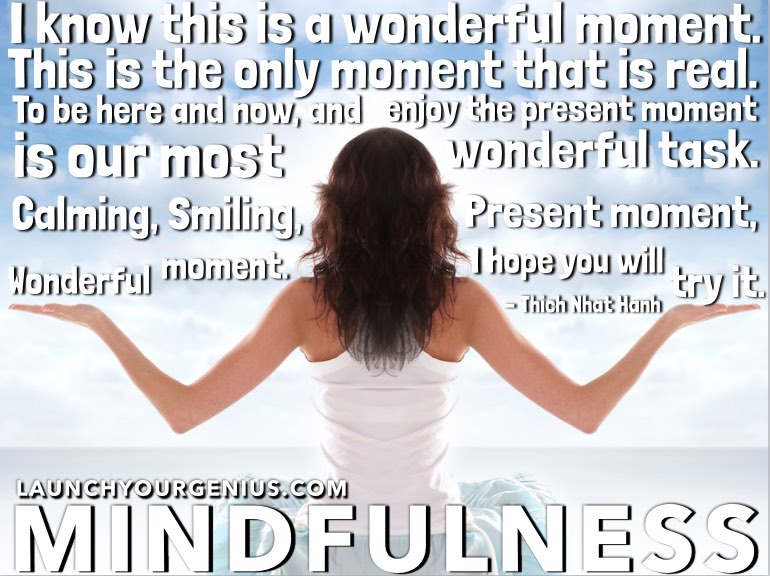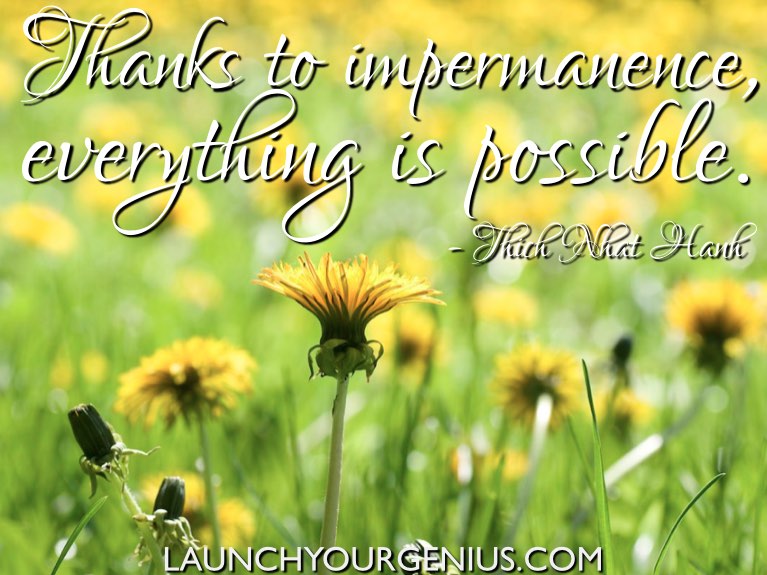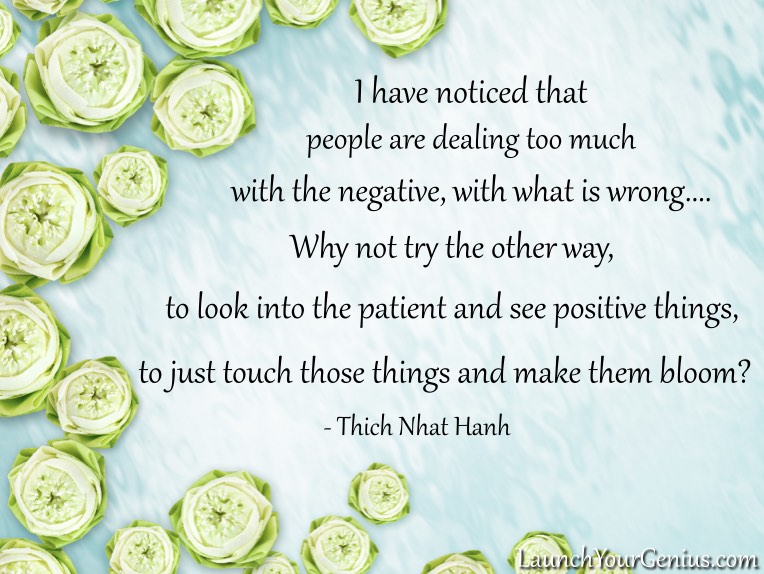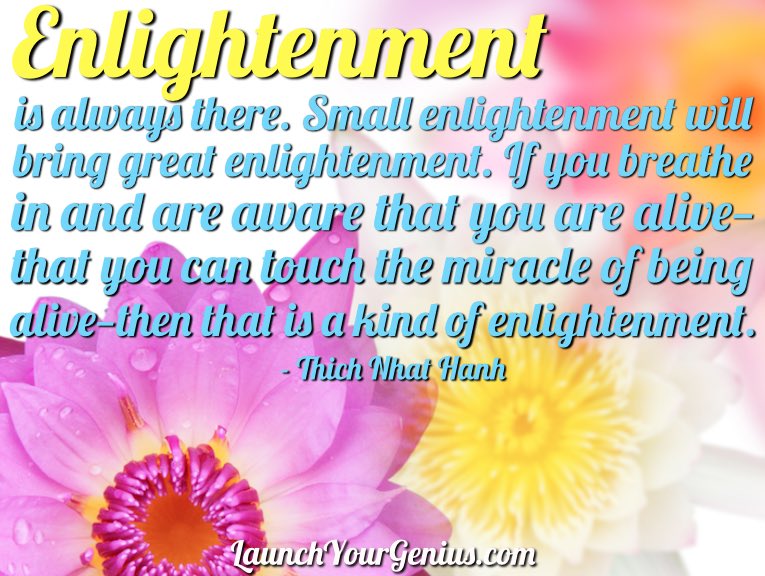“I know this is a wonderful moment. This is the only moment that is real. To be here and now, and enjoy the present moment is our most wonderful task. Calming, Smiling, Present moment, Wonderful moment. I hope you will try it.”- Being Peace, Thich Nhat Hanh
This is part-2 of the two part series on Life tips from the Zen master Thich Nhat Hanh. You can read part 1 here.
If you like the ideas in this post, please leave me a comment below or send me a message about which idea resonated most with you and why. Moving on right alone to the next idea!
11. The Compassionate Action
“Compassion is a verb.” ― Thich Nhat Hanh
Compassion is a powerful feeling that can tranform into radical empathy and understanding. I learnt from Thay that deep loving-compassion is best expressed through your actions.
The choice is yours to make. Are you going to have feelings of empathy and compassion and not take any action on them? Or are you going to translate those powerful feelings into action?
One of the major reasons that we do not take action is because we feel that we are not enough. We rationalize that our voice is not enough to make a difference. But I have begun questioning the validity of that idea.
Every small action carried out with compassion is powerful and transformative for the planet. As Mother Teresa said that we cannot do great things but small things with great love.
“My actions are my only true belongings.” I cannot escape the consequences of my actions. My actions are the ground on which I stand.” – Thich Nhat Hanh
So it is upon us to choose compassion and transform it into an action. And the action can be a small smile and a few kind words or it may involve giving more time and effort.
“The source of love is deep in us and we can help others realize a lot of happiness. One word, one action, one thought can reduce another person’s suffering and bring that person joy.” – Thich Nhat Hanh
And as Thay says, every single word, action and thought can uplift another person’s life.
Science research has also shown that we are most happy when we use our talents and resources to pro-socially uplift others.
“Nonviolent action, born of the awareness of suffering and nurtured by love, is the most effective way to confront adversity.” -Thich Nhat Hanh
“You are not an observer, you are a participant.” -Thich Nhat Hanh
12. The Power Of Embracing Uncertainty and Impermanence
“Thanks to impermanence, everything is possible.”- Thich Nhat Hanh
We are often faced with a duality.
The ancient brain stem or the reptilian brain wants security. It activates the “flight or fight” response to anything that is outside your comfort zone.
But living on the edge of your comfort zone or in a state of “impermanence” is essential for your creativity. Being all right with impermanence is key for taking bigger and bigger leaps into excellence.
Thay says it best when he advises us that impermanence is the beginning of possibility.
When I think about that idea and allow it to percolate into my consciousness, I realize that we want to be creative but we do not like discomfort.
We want to be successful but shy away from impermanence.
If there is anything that is certain or constant, it is change.
The practice of Tibetan mandala building and eventual destruction is a great portrayal of impermanence.
A group of monks with gentle attention and careful awareness pour line and layer by layer of colored sand on a platform that houses the mandala design.
Over chants and music and often over many weeks, they create a beautiful mandala that is astonishing to behold. As the mandala is completed, it is then promptly and ceremonially destroyed.
Mandalas are powerful reminders of the impermanence of existence. They remind us of the inevitable destruction of everything. They also reinforce the art of being all right with change and letting be.
13. Cultivating A Beginners Mind And Letting Go
“The secret of Buddhism is to remove all ideas, all concepts, in order for the truth to have a chance to penetrate, to reveal itself.” ― Thich Nhat Hahn, Buddha Mind, Buddha Body: Walking Toward Enlightenment
I have always learnt the art and importance of letting go of firmly held views from Thay.
Thay advises that as we release our grip on preconditioned ideals and ideas, new aspects and ideas reveal themselves to us in many different forms.
When you are ready to look beyond conditioned beliefs and responses, you can begin to see things as they are.
“Letting go gives us freedom, and freedom is the only condition for happiness. If, in our heart, we still cling to anything – anger, anxiety, or possessions – we cannot be free.” – Thich Nhat Hanh
This reminds me of the Zen story of the learned man who goes to the master and asks him to reveal all his wisdom to him.
Here is the story from a previous post that I wrote:
A university professor went to visit a famous Zen master, Nan-in to learn about Zen teaching.
As the master served tea, he did not say a word, but the eager professor talked to him about Zen.
Nan-in poured the visitor’s cup to the brim, and then kept pouring.
The surprised professor watched the overflowing cup until he could no longer restrain himself.
The professor blurted out: “It’s overfull! No more will go in!”
The master calmly replied: “You are like this cup and full of your own opinions and speculations. How can I show you Zen unless you first empty your cup?”
“We have to continue to learn. We have to be open. And we have to be ready to release our knowledge in order to come to a higher understanding of reality.” – Thich Nhat Hanh
14. Feeling A Sense Of Hope
“Every path, every street in the world is your walking meditation path.”- Thich Nhat Hanh
When things do not go as planned, we may feel a sense of panic or unease. This usually happens because you may have set your mind to a fixed target and not achieving that may seem like a disappointment.
With many of those setbacks, you may begin to lose hope that anything great can come out of all of your hard work.
The idea that Thay reminds us is that there is no path or street or way that will not teach you something new and enlightening.
When you embrace the path forward as your meditation path, you can now move with lightness and ease and a sense of comfort. You are no longer associated with the “one way” of doing things.
If things do not work out as they often will not, you do not lose hope.
You are now deeply connected to a greater global sense and picture of hope that is target and goal independent.
In this path:
- You learn from experiences.
- You savor the moment.
- You hold a deep sense of Hope and Optimism.
- You may get disappointed but you understand that it too will not last forever.
- You hold on to hope for hope’s sake and not for a particular goal.
- You embrace the new paths as they reveal themselves and unfold.
“Hope is important because it can make the present moment less difficult to bear. If we believe that tomorrow will be better, we can bear a hardship today.”― Thich Nhat Hanh, Peace Is Every Step: The Path of Mindfulness in Everyday Life
15. On Anger And Suffering
“When you say something really unkind, when you do something in retaliation your anger increases. You make the other person suffer, and he will try hard to say or to do something back to get relief from his suffering. That is how conflict escalates.” – Thich Nhat Hanh
Anger, doubt, suffering can become habitual and a pattern that keeps repeats itself in our lives.
Thay says that this suffering can become difficult to let go of because of its familiarity. You may need to replace that model with a different one that serves you better and one that involves peace of mind and contentment.
“People have a hard time letting go of their suffering. Out of a fear of the unknown, they prefer suffering that is familiar.” – Thich Nhat Hanh
Anger and suffering can be great motivaters and we may have a lot to learn from them. But once the lesson is learnt, it is best to move on and not to dwell in the house of anger and suffering.
Ask yourself what are the habitual things and triggers that make you angry.
Is it the driver who cuts you off or the arrogant self-centered persons that you come across in your work and life? When you recognize and become aware of your triggers, you can reframe them and allow them to dissolve.
As Thay suggests, retaliating in anger and saying angry words as you may do sometimes only increases your anger and only makes matters worse.
Even though it does not feel like that when we are in a state of anger, it always feels worse later on. I have many times regretted saying unkind things to people and make them feel bad and perhaps even suffer.
Whenever I allowed myself to take time to process my anger and gave it a proper perspective, I was able to respond to situations with more kindness and understanding.
When we look at different perspectives and angles to the same situation, we are free because we have a deeper understanding.
Just the idea that others are suffering and living their own difficult stories and karma is enough to release the habitual anger that we feel.
Now we can feel a fresh feeling of relief and ease like a weight has been lifted off our shoulders.
So that person who cut you off in traffic might just be living their own life and suffering from their own hurry and unique set of events. Now you begin to feel some thawing in your heart and begin the journey of empathy.
Remember:
- We tell stories about others.
- We suffer because it feels habitual.
- We react in anger to an ancient trigger because we are uncertain of its origin and intention.
- Others are living stories that we may not be aware of.
- We are pre-conditioned to allow unfavorable feelings and events to stick and process more strongly in our minds thus repeating the same patters of suffering.
“If you suffer and make your loved ones suffer, there is nothing that can justify your desire.” – Thich Nhat Hanh
16. Negativity
“I have noticed that people are dealing too much with the negative, with what is wrong. … Why not try the other way, to look into the patient and see positive things, to just touch those things and make them bloom?” – Thich Nhat Hanh
To touch the positive things and make them bloom is timely advice from Thay.
The important idea here is not to avoid negativity or run away from it. The idea is to acknowledge both the negative and the positive but to not allow the self to dwell in the negative and stay there.
But when you open the newspaper or look at the economy, you may not feel like touching positive things. There is an important brain science lesson here.
Science studies have shown that negativity is simply more strong and “sticky” when compared to the positive aspect.
The ratio of negative to positive interactions is roughly 1:5 for balance.
In other words, if you have one negative interaction with someone, you may need as many as five positive ones to compensate.
This is called the “negativity bias” and has extensive implications for our life and our happiness.
Thay’s advice of touching the positive more often resonates well with the science on behavior states.
Instead of telling you to be all positive thinking all the time, he instead takes the more realistic and gentle approach of becoming aware of the balance of positivity and negativity.
Instead of becoming unrealistically positive, he advises us to gently touch the positives in a situation and allow them to bloom like a flower.
17. Keeping It Real
“Feelings, whether of compassion or irritation, should be welcomed, recognized, and treated on an absolutely equal basis; because both are ourselves. The tangerine I am eating is me. The mustard greens I am planting are me. I plant with all my heart and mind. Nothing should be treated more carefully than anything else. In mindfulness, compassion, irritation, mustard green plant, and teapot are all sacred.” – Thich Nhat Hanh
This is where many of us run into some rough weather. We attempt to maximize the experiences that we consider to be favorable.
Unfortunately, we also:
- Run away from setbacks.
- Avoid discomfort.
- Stick with what we know and not seek novelty.
- Shut off feelings and emotions that are difficult to process.
- Avoid people who shine light on parts of us that we want to hide.
- Seek to understand others and externalize while not spending enough quality self time.
- Hide behind addictions and habits that do not serve us.
- We resist and we struggle and cause much self-suffering.
Thay suggests another way. It is to shine the light of awareness and the power of acceptance on both our compassion and our irritation. Mindfulness and awareness shine the light of loving compassion and kindness on all aspects of our life.
Everything is an opportunity to learn and to be mindful. In the same light, it also means that we do not get overly attached to any one idea or way.
“To think in terms of either pessimism or optimism oversimplifies the truth. The problem is to see reality as it is.”- Thich Nhat Hanh
18. On How To Live Life With Meaning
“Our own life has to be our message.”- Thich Nhat Hanh
Often, we feel separated from our highest self and we ask what is the meaning and purpose of life. It is an existential question that might pop into your head time and again.
Philosophers and wise people have attempted to answer the question of what makes up the meaning if life. How should you proceed with the burden of the past weighing you down and the uncertainty of the future to contend with?
“You are like a candle. Imagine you are sending light out all around you. All your words, thoughts and actions are going in many directions. If you say something kind, your kind words go in many directions, and you yourself go with them. We are …transforming and continuing in a different form at every moment.” – Thich Nhat Hanh
Thay has a simple solution and says that our life should be our message. Thay also suggests you to shatter the myth of separateness. When we feel separate and small and cut off from the rest of the world, we run into existential problems.
The idea is to understand the connection between life and the fabric of the world and the universe .
Science has also shown the energetic connection of matter both on a cosmic scale and also at a super small scale.
Quantum mechanics is now showing interesting concepts like quantum entanglement and the butterfly effect. If a butterfly flutters its wings in Tokyo, there is a shift in the energy dynamic of the universe, even though tiny that it might be.
Since nothing exists in vacuum and by itself, Thay’s idea makes a lot of practical sense to me.
Instead of feeling small and separate, feel and savor in the myriads of connections and entanglements that we have with the universe.
“We are here to awaken from the illusion of our separateness.” – Thich Nhat Hanh
19. Fear
“Fear keeps us focused on the past or worried about the future. If we can acknowledge our fear, we can realize that right now we are okay. Right now, today, we are still alive, and our bodies are working marvelously. Our eyes can still see the beautiful sky. Our ears can still hear the voices of our loved ones.” – Thich Nhat Hanh
When you look at your fears as construct from the past and worries about the future, we can place them in the proper perspective.
Thay suggests the idea that fear removes the present focus to a past one. Fear can make us worried about the future in this present moment.
- Instead of allowing fear to drive you, acknowledge it.
- Instead of avoiding fear, you become aware of how it operates in your life.
- Instead of having a knee jerk reaction to ancient fears, we understand how they affect our present.
- Instead of getting paralyzed with fear, you take a small action and realize that you can move forward.
When you realign your attention to the current moment without excess burden from the past or associating with the future, you may see that your fears do not feel as bad.
Are you making fearful simulations in your mind and running the tape over and over again?
Place your fears in perspective and come back to the magic of the current moment of action, power and magnificence.
We cannot end our fears but we can choose to strengthen the networks and pathways that allow for a deeper understanding of the fear.
We can choose behaviors that ease the fears through realignment, improvisation and action.
Fear feeds off:
- Vagueness
- Uncertainty of how to move forward
- Doubt about the self and your skills
- Anxiety over things that may not come true
- Worry and stress
- Unrealistic expectations
- Lack of a proper perspective
- Lack of meaningful action
“Without fear, we are able to see more clearly our connections to others. Without fear, we have more room for understanding and compassion. Without fear, we are truly free.” – Thich Nhat Hanh
20. Meditation
“Meditation can help us embrace our worries, our fear, our anger; and that is very healing. We let our own natural capacity of healing do the work.” – Thich Nhat Hanh
Often we become aware of our fears, worries and stress but still we are unable to release them.
Have you had the following thoughts before?
- You want a stress less lifestyle but you do not know how to unwind.
- You want less anxiety but you are still anxious.
- You have tried all the tangible advice out there to release your fears but you still feel viscerally afraid of…public speaking, crowds or fill in your fear here.
- You have become aware of your doubts and negative emotions but intellectualizing them has only taken you so far.
What is the solution? Thay says that meditation is a healing modality that allows you to embrace fears and worries.
I can tell you from personal experience that if there is one beneficial practice for the mind, body and the spirit, it is regular meditation.
The popular advice that you may have read many times is to take up meditation. The truth is that it is quite difficult to cultivate a deep and meaningful meditation practice.
But from the infinite wisdom of Thay’s work, I have learned that simply sitting in a few moments of silence and practicing breath work is a good place to begin.
Even a few minutes of silence and mindful breathing can make a big difference over the long period.
As we embrace the practice of silence and meditation, gradually we may find that our restless mind begins settling down.
Over time, we begin carrying around this sense of calm and a deep sense of peace as it diffuses into all aspects of our live.
Much like the fragrance if a beautiful flower enlivens the environment around it, meditation does the same for us. The benefits of meditation soon spread all over our life and grace the body, mind and spirit.
“This is a very important practice. Live your daily life in a way that you never lose yourself. When you are carried away with your worries, fears, cravings, anger, and desire, you run away from yourself and you lose yourself. The practice is always to go back to oneself.” – Thich Nhat Hanh
21. Enlightenment
“Enlightenment is always there. Small enlightenment will bring great enlightenment. If you breathe in and are aware that you are alive—that you can touch the miracle of being alive—then that is a kind of enlightenment.” – Thich Nhat Hanh
Many of us believe that we have to get away and be in a forest in seclusion or be on a mountaintop to receive insights. This whole idea of nirvana or Zen seems unattainable and utterly distant and unapproachable.
Thay suggests the simple and powerful advice that ordinary daily life is what enlightenment is made up of.
Mindfulness and Zen master and student of Thay, Jon Kabat Jinn says that wherever you go, there you are and you find the self.
Thay urges us to go for small moments of awareness, breath and clarity. When you take a breath and become aware of your aliveness, you position yourself to enjoy a clear and enlightened moment.
Live like you are enough and you have a genuine shot at a clear and miraculous moment of now. This is a powerful way of being. In this state, you cast aside doubts and preferences and simply enjoy the “beingness” of the current moment.
Just be and feel the enlightened moment of awareness.
“There is no enlightenment outside of daily life.” – Thich Nhat Hanh
“Every morning, when we wake up, we have twenty-four brand-new hours to live. What a precious gift! We have the capacity to live in a way that these twenty-four hours will bring peace, joy, and happiness to ourselves and others.”– Thich Nhat Hanh
This is the end of our series on the wisdom of the Zen master Thich Nhat Hanh. Please leave me your comments and your kind words in the comments section below.












Comments